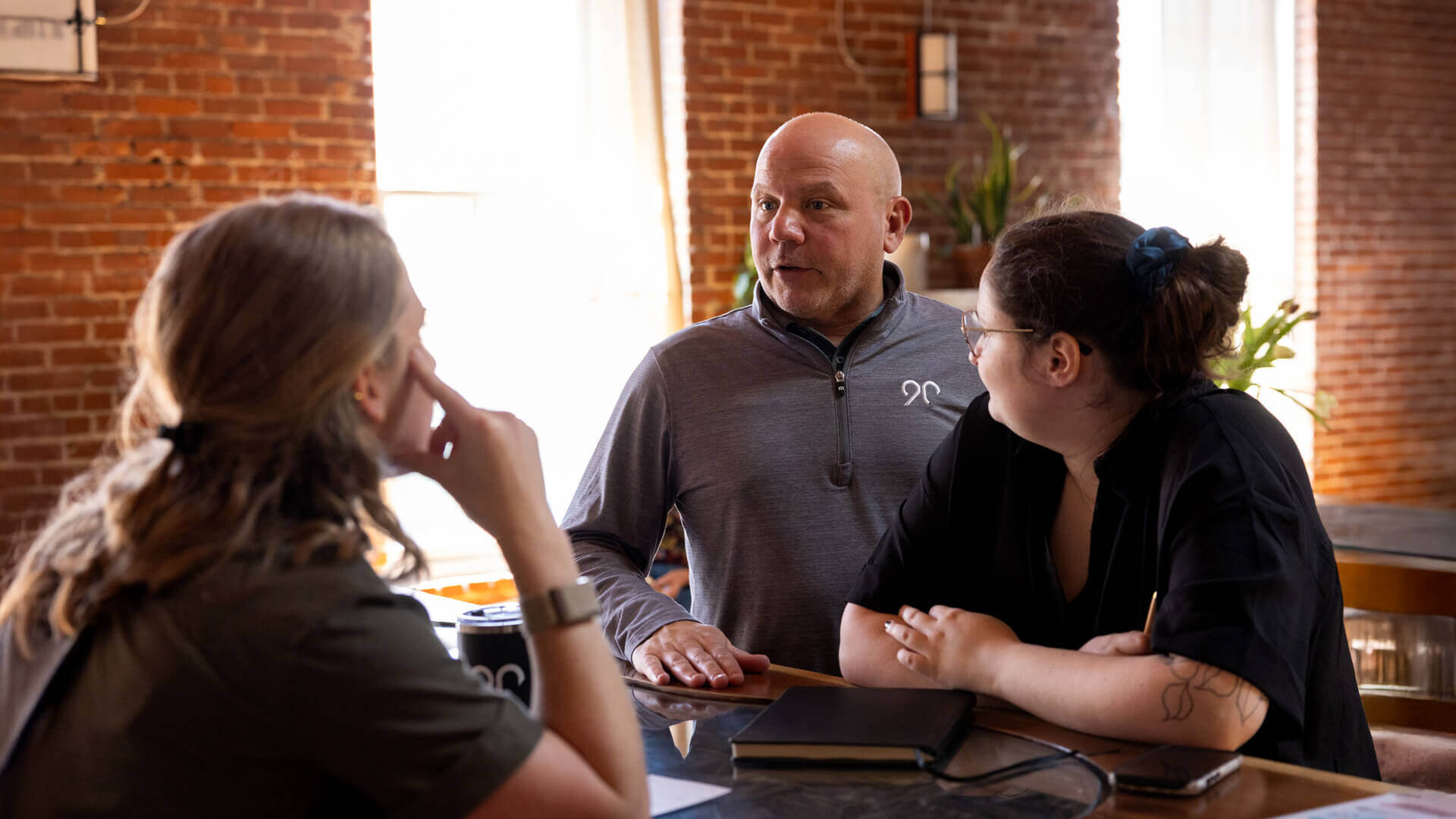Advice Isn’t the Same as Coaching (And That Difference Matters)
I’ve never liked being told what to do. It’s not about being rebellious (at least not entirely). It’s more about this deep, persistent need to own my decisions, to learn the hard way if I have to, and to make choices based on where I’m at. Most ambitious founders, leaders, and coaches have some version of this wiring. And that’s okay. It’s part of what makes us who we are. But it also creates this subtle tension in relationships, especially when we’re on the receiving end of advice (solicited or not), or when we’re trying to help someone else on their journey.
Lately, I’ve been thinking a lot more about how often we blur the lines between guiding, advising, and truly coaching the people we care about. It’s probably something I find a bit more interesting than most for a few reasons:
- I don’t like being told what to do.
- I’m a leader and a coach.
- I’m guilty of providing advice on occasion.
The truth is all of us (especially those of us building, running, and scaling companies) are going to be on both the giving and receiving end of advice. Most of the time, it’s offered with good intentions. But there’s a meaningful difference between unsolicited advice, solicited advice, and coaching.
Each is meant to be helpful. But the way they land, the way they influence us, and the value they actually create — that’s where the real differences begin to matter.
The Problem with Unsolicited Advice
Unsolicited advice often arrives without invitation. It's handed out freely (and sometimes carelessly) without a deep understanding of the facts, aspirations, or struggles at play. And while it’s usually well-intentioned, it rarely lands well because it doesn’t meet us where we are. It almost always assumes a one-size-fits-all approach to situations that are inherently personal and unique. And it assumes simplicity in situations that are almost always anything but.
This type of advice has a tendency to feel invasive and inconsiderate, like someone’s trying to shortcut your learning or sidestep your personal experiences, and for those of us working through real challenges in real time, it rarely feels supportive.
Personally, I’ve never been a big fan of it, even when it comes from someone with the best of intentions.
Why I’m Wary of Solicited Advice (Even the Good Kind)
Now, solicited advice is a bit more interesting, but I’ll admit, I’m cautious with it, too. The issue I keep bumping into is context. More often than not, the person offering advice — no matter how credible, experienced, or well-meaning they may be — lacks the context I believe is necessary to truly understand and appreciate the individual at that moment. Each of us is so unique, and the irony is that the more credible the advice provider is, the more likely they have no real clue who we are, what we’re dealing with, and the lessons we’re working on.
Most people who have spent time with me know I say this often, and I believe it deeply:
We are exactly where we’re supposed to be, learning the lessons we need to learn.
It’s not just a mantra. It’s become one of the guiding principles of my life. And it’s rooted in a handful of these beliefs:
- Everyone wants to matter.
- Each of us is truly unique, and the way we matter is unique.
- The best way to matter is to Work and serve others.
- How we Work and serve should be interesting, leverage our strengths and passions, and be in service of our goals.
- How we best matter tends to evolve because we inherently lose interest when things become less challenging.
What flows from this is a strong belief that our well-being is, first and foremost, our responsibility. No one else will ever fully understand who we are or where we are in our developmental journey. That’s not pessimism — it’s clarity and empowerment.
So yes, ask for advice if you want it, but remember no one else has the full view of your journey. Which means the ultimate responsibility for interpreting, integrating, and acting on that advice is yours.
How Coaching Is Different
All of this said, giving advice and coaching are very different, and I deeply believe in the value of coaching.
I’m a big fan of the phrase “You cannot read the label from inside the jar.” We all have weak spots, and we often need someone outside the day-to-day to help us see what we can’t. In my experience coaching hundreds of leadership teams and well over a thousand people, I’ve seen that truth play out again and again. I’ve also had my own coaches for over a decade (usually two at the same time — one helping me grow personally, another helping me as a leader and company builder). And I can honestly say, coaching has been one of the most consistently valuable investments I’ve made in myself and in the teams I’ve led.
But here’s how coaching is different from the advice I talked about above: The kind of coaching I’m talking about isn’t surface-level. It’s tailored to the individual. Skilled coaches engage beyond job titles and surface-level goals. They coach the person by understanding and appreciating what I’ve called the person’s Meta-U (you can read more about this in my book Work 9.0). Coaches dig deeper into who we are, what drives us, where we are (what we’re going through), and where we aim to go.
Coaching is both solicited and specific. It’s a collaborative process in which the coach and the person being coached explore possibilities together. And when done well, it aligns with the individual’s values, needs, abilities, circumstances, and goals.
Why do I love coaching? Because it supports and honors each of our journeys by respecting where we are and helping us move forward at our own pace. This is one of the reasons at Ninety we don’t like to use the word manager. We lean into the words team leaders and team members, and we teach team leaders how to excel at agreements-based leadership and coaching (or ALC for short). Words matter, and we’re not here to manage people. We’re here to support and honor who they are and who they're becoming.
Not All Advice Is Created Equal
While I find coaching to be an incredibly useful tool both personally and professionally, I’ve come to hold pretty strongly that most advice, both unsolicited and solicited, isn’t all that useful.
So yes, I’m fully aware of the irony when I say this: I tend to advise people not to give or take too much advice. Especially the unsolicited kind. It’s rarely as helpful as we want it to be, and more often than not, it bypasses who we truly are as unique individuals.
And here’s the punch line: If you’ve made it this far, this isn’t unsolicited advice. You chose to read this, which probably means it’s something you’ve been thinking about, too. This is part of how you learn — by exploring, reflecting, and engaging with new ideas. And hopefully this article has given you some potentially useful information. Take what resonates. Leave what doesn’t. That part’s up to you.
Because ultimately, this is your path to walk — your way of learning, leading, and coaching.





